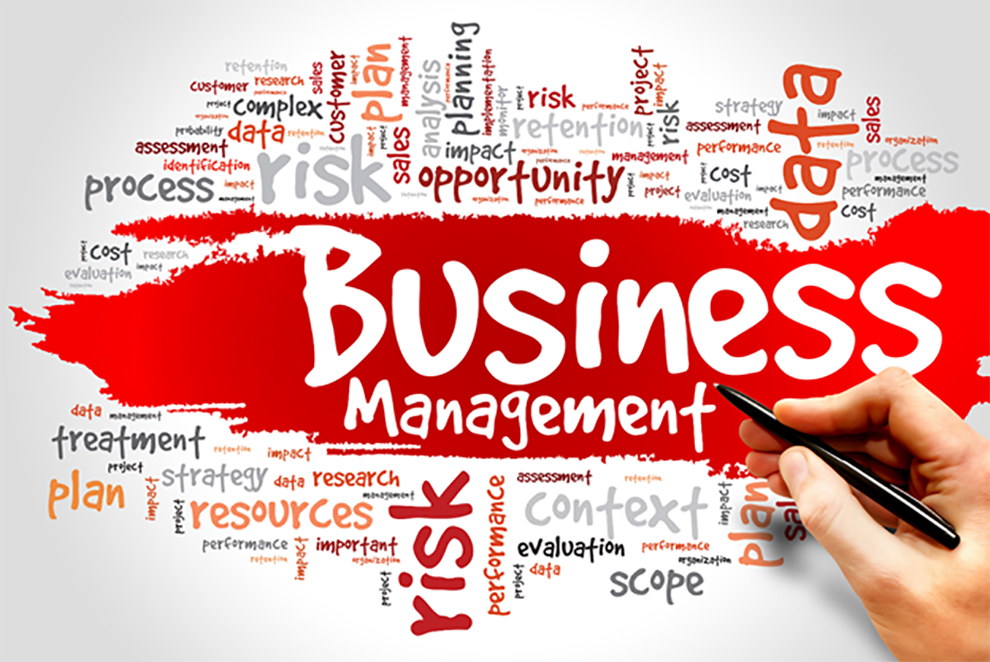Are you going for a job interview? There is a good chance that you will witness common interview questions. One of them is – how do you handle pressure and stress?
A study suggests that high percentage of Americans are routinely stressed, and this number is only getting bigger by the day. Further, the study involving 2000 full-time employees between the working-age of 18 to 79 years found that over fifty percent of them feel stressed on at least three days a week in a five-day workweek.
This number is alarming, and regardless of whether your employers care for you, they care for their organization.
Jump To
- Why Do Employers Always Ask Pressure and Stress Related Questions?
- What The Employer Wants To Know From Your Answer?
- How To Answer The Pressure and Stress Question?
- What To Avoid In The Answer?
- How Does Pressure And Stress Affect Your Work?
- Tips For Managing Workplace Stress And Pressure
- Frequently Asked Questions
Naturally, stress hampers your productivity. If you let the stress take the better-off you, you will see a sharp decline in your productiveness. Hence, employers want to know how do you deal with pressure or stressful situations.
But this is not the only reason why how do you handle stress and pressure interview question is so common. Read below to know more on the subject.
Why Do Employers Always Ask, ‘How Do You Handle Pressure and Stress?’
Before we discuss how to answer how do you deal with stress, you need to understand the motive of the employers behind asking this question.
Naturally, all interviewers wish to hire the best available candidate. There will be several situations in your job where you will feel stressed. So, the primary objective of the employers behind this question is to assess your stress management skills.
They wish to know your reaction to stressful situations and whether or not you keep your calm when the conditions are not favorable. This question is imperative when applying for a high position in the organization.
What Is The Employer Looking For When He Asks, ‘How Do You Deal With Pressure Or Stressful Situations?’
How to answer how do you deal with stress? What is the employer looking for? Before we address this, please understand that the employer will never hire you if you:
- React to stress in a very disruptive way
- Get angry or sad in a stressful situation
- Feel overwhelmed during stressful situations
- Let stress hamper your work quality
- Tend to cause stress to others when you are stressed
But employers will hire you, if:
- The pressure pushes you to work harder
- You plan your work to avoid future stressful situations
- You understand the importance of prioritizing the tasks
- You communicate about your stress to your colleagues to find a solution
- You do not wallow in anxiety and work towards overcoming it
- You understand your triggers and keep a check on them
So, what do you think the employer is interested in when they ask, ‘how do you deal with pressure or stressful situations?’
They solely wish to know how you react to these pressure situations and the plausible impact it may have on you and work you do.
They know, acknowledge, and understand that there will be no shortage of stressful situations, but they wish to ascertain that these situations do not crumble your personality.
How To Answer The ‘How Do You Handle Stress and Pressure Interview Questions?’
What is the how do you handle stress and pressure best answer? See, there are multiple ways to go about it. Here is a to-do list to help you answer the question well and bag the job.
Step 1 – Try to express how you perceive stress and pressure.
How do you handle pressure and stress? Think of this question, and ponder hard for a bit. Then, address it in an interviewer-focused manner. So, go back in time, and remember all the strategies you adopted anytime you faced a stressful situation to stay constantly motivated.
- Being positive and calm
- Acknowledging that not everything is under your control
- Indulging in breathing techniques like meditation, yoga, and visualization
- Making pressure your number one motivator
- Avoiding foods that trigger stress, such as Alcohol, Caffeine, Processed foods, sugary drinks, and more
- Using exercise as a means to calm your mind and body
- Getting proper sleep
- Not carrying stress to your home
- Finding a balance between professional and personal life
- Taking some time off
- Practicing time management
- Seeking help from a professional mental health expert
How do you handle stress and pressure best answer would be one that showcases that you have thought about it through and through and understand your relationship with stress.
So, as you answer how do you handle pressure and stress, explain to the employer the following:
- What are some things that trigger stress in you?
- Who was responsible for this stress? If it is somebody else, how did you react to it? Or, if you, what different could you have done to avoid such a situation again?
- What measures did you take to overcome it?
- If such a situation arises again, is there anything you can do differently?
- What impact the stress have on your work?
- Did stress and pressure intervene with your personal or family life?
Step 2 – Tell them of situations when you thrived under pressure.
Now, as you tackle how do you handle stress and pressure interview questions, you need to back it up with a situation from your past or your personal experience where you endured and overcame a similar situation.
If, as an employee, you have some experience behind you, there will be some situations where you feel pressured and stressed. So, tell them about that time and how you dealt with it. You can share the strategies or the soft skills you adopted to overcome these situations.
Some soft skills that are imperative to deal with a stressful situation are:
- Flexibility
- Problem-solving
- Time management
- Communication
- Leadership
- Accountability
- Adaptability
- Organization
Further, avoid talking about situations where you were at fault. For instance, never say something like, ‘I cannot say no to things. So, even when I had more work than I could manage, when my manager insisted on more work, I couldn’t say no.’
You may think it showcases you in good light, but if you could not balance the extra tasks properly, it would go against you.
But, if you have no prior employment experience, you can share some situations from your college life, for instance, the exam stress, multiple assignments pressure, how you balanced studies and extra-curricular activities, events, and alike.
Step 3 – Be ready for follow-ups
As you go on to answer how do you handle pressure and stress, you also need to prepare yourself for the follow-ups.
But before that, there are two things you need to do here:
- See, when you are in a corporate, there may be times, when you are forced to handle multiple tasks, regardless of how overworked you may be. Convince them how you are capable of multi-tasking, and actively handling such situations.
- Often some candidates disregard pressure or stressful situations. They completely deny having faced something like this in their past jobs or life.Please understand that this completely feels unbelievable. It can make them feel that you do not take any task seriously or you do not understand your own emotions. Both of these can go against you.
Some follow up questions that you may be faced with in your response to how do you deal with pressure or stressful situations are:
- Did the supposed stressful situation cloud your judgment?
- Did stress impact your ability to make decisions?
- What challenges you the most?
- How do you manage stress when it is a group project? Did it affect others in the group?
- Did stress motivate you to perform better?
- What kind of work environment do you enjoy?
- Describe your working style in a few words.
How To Answer This Question? Some Sample Answers To Managing Pressure and Stress
What are some how do you handle stress and pressure best answers? Below, we will discuss a few of them:
Example 1
I am the head of the digital marketing team comprising four members other than me. I have been supervising them for over three years now.
Things have been great until one day, when the primary person responsible for SEO quit. No notice, no prior information, absolutely nothing. SEO is a priority for digital marketing. But we could not give up.
So, I took matters into my hand, did his share of work and mine, and delegated a few responsibilities to my remaining team members.
In the meantime, we opened vacancies for SEO experts. Within a month or so, we had a new member on board. Of course, the situation was stressful, and the work pressure was mammoth, but my time management and prioritizing skills helped me sail through it calmly.
Example 2
I have two phenomenal soft skills – Effective communication and persuasion. In most stressful situations, these two skills have helped me sail better.
So, as a support representative, there are many a time a customer comes up to me with concerns. At times, it is even the company’s fault, while other times, there is no remedial but to deny the customer’s request.
In both these situations, I maintain my calm, politely convey the issue to the customer, then pacify and persuade them to conclude. It helps relieve my stress and the stress of the grieved customer.
Example 3
Of course, there have been multiple stressful situations in my past workspace, but I have also dodged most such situations with my habit of persistent planning. Anytime I get assigned a task with a deadline, I immediately make a Plan of Action.
My objective is to wind up the work a day or two before the client’s deadline. It helps me be ahead of the deadline and plan better. Further, it also gives me ample time for corrections and modifications.
What To Avoid While Answering Pressure & Stress Management Questions?
When employees ask you how do you handle pressure and stress, there are a few things that are a strict no-no. Hence, you must avoid saying these things to ensure that there is no rejection.
Some such things are:
- Never say something like you have never faced stress at the workplace. Why? It is off-putting and unbelievable.
You may say this to showcase how calm you are, but that is not the interviewer’s objective of asking the question. He only questions you to know how you react to such situations. Hence, if you do not give a satisfying answer backed with a personal experience, you will lose out on the job. - Never give an example of a stressful situation where you were the reason for stress. For instance, you forgot the deadline or said yes to multiple things only to realize that they are not manageable for you.
- Also, do not ever say that you panicked when the stressful situation occurred.
How Does Pressure And Stress Affect Your Work?
Work-related stress can hamper your productivity. It can also make you perform poorly at work, cause high turnover, and increase lost workdays.
Hence, as a supervisor or manager, it should be your constant responsibility to ensure that you set a positive role model. If you are calm in stressful situations, you set an excellent example for others.
Tips For Managing Workplace Stress and Pressure
- Accept that you feel pressurized but do not let it overwhelm you.
- Prioritize things, focus on the one thing that needs your immediate attention, and leave everything for later.
- Understand that it is ok to make mistakes. And, when you do, please be ready to forgive yourself and move on.
- If you feel overworked, do not take extra work.
- Taking a break now and then is ok.
- Do not waste time, and learn time management.
- Make a list of all things to avoid forgetting anything important
- Do not feel guilty for a short coffee break after a draining task.
- Understand and know the specializations of your team members, and delegate work accordingly.
- Do not postpone things until the last minute.
Related: Best Negotiation Courses, Top Conflict Resolution Classes, Counselling Courses
Frequently Asked Questions
Ques 1. What are four strategies for managing stress?
Ans. The 4 A’s of Stress Management include: Avoid (eliminate the stressor), Alter (change and communicate your needs), Accept (the situation), Adapt (find your way out).
Some strategies to manage stress are:
- Guided meditation
- Manage your social media time
- Easy exercise at home especially Indulge in deep breathing exercises
- Eat good and sleep well
- Do
Ques 2. How do you handle stress and pressure at work?
Ans. Above we have already discussed ten tips to manage workplace stress. You can take cues from the same.
Ques 3. What causes stress and pressure at work or in general life?
Ans. Different people stress about different issues. Some life events that can trigger stress are shifting cities or countries, changing jobs, relationship troubles, long-term illness, challenges with your kids, and monetary issues.
At times, daily hassles, such as traffic, insufficient sleep, inability to balance personal or professional life, can also cause stress.
Ques 4. Does pressure work as a positive reinforcement for people too?
Ans. Yes, some people perform better when they experience work pressure. They see pressure as a motivator to outdo themselves.




